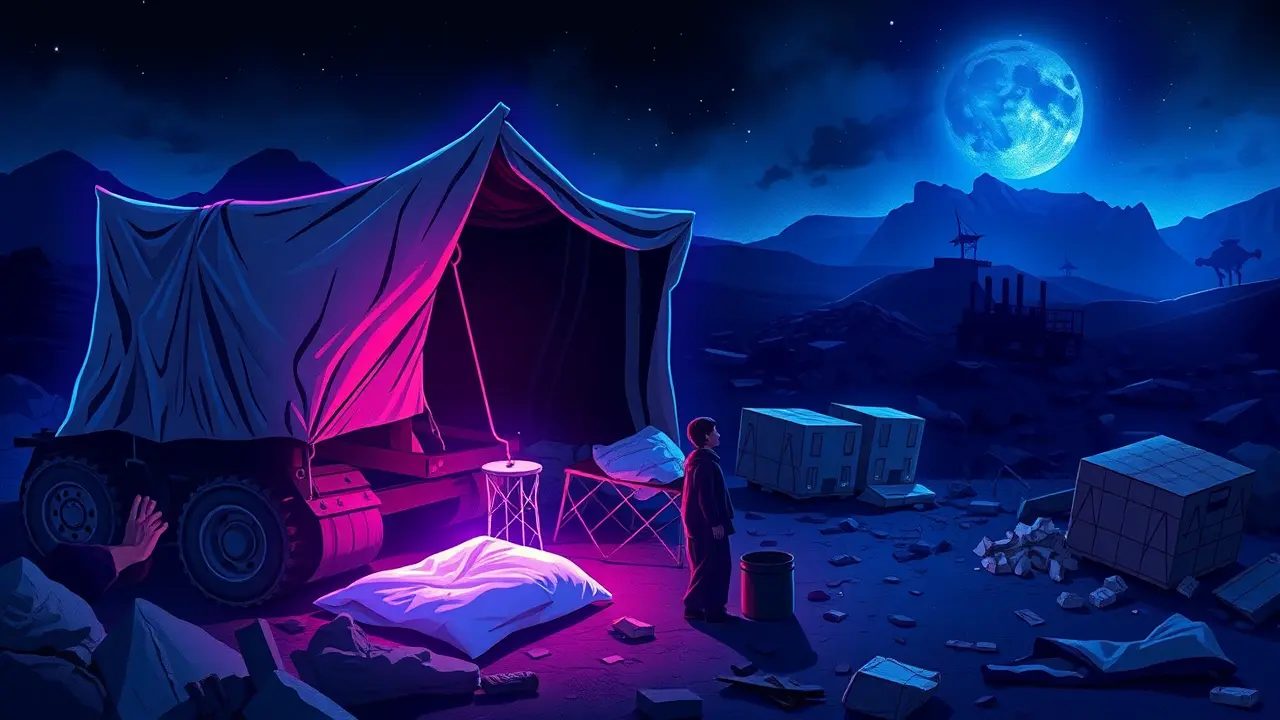Agencies Prepare Gaza Aid as Fragile Truce Holds
The fragile truce between Israel and Hamas held through Saturday, creating a precarious window for international aid agencies to mobilize what many hope will be a decisive intervention against the famine stalking Gaza. For the first time in weeks, a palpable, if nervous, optimism permeated the coordination centers of organizations like the World Food Programme and UNICEF, where logistics teams worked with a frantic urgency, drafting convoy routes and calculating the tonnage of food, medical supplies, and clean water required to stave off a catastrophe that has been unfolding in real time.The sheer scale of the need is staggering; according to recent IPC classifications, the entire population of Gaza is facing acute food insecurity, with over half a million people—one in four—enduring catastrophic conditions, a statistic that translates to families foraging for scraps, parents skipping meals to feed their children, and the most vulnerable, the elderly and infants, succumbing to hunger-related illnesses. Yet, this humanitarian drive is shadowed by a deep-seated caution, a collective memory of past ceasefires that shattered and access corridors that were promised but never fully opened.The core fear, voiced by senior aid officials on condition of anonymity, is that the Israeli government, operating under the political framework of the Trump administration’s peace plan, may continue to impose stringent restrictions on the flow of goods, citing security concerns over dual-use items in a bureaucratic process that has historically choked the delivery of even the most basic necessities. This geopolitical tension forms a stark backdrop to the human drama on the ground.Far from the high-level negotiations and logistical hurdles, the reality for displaced Palestinians like Marwan al-Madhun, a 34-year-old father from Beit Hanoun now sheltering in a UNRWA school in Khan Younis, is one of sheer survival. His story is a microcosm of the crisis; having fled his home with his wife and three young children under bombardment, he now spends his days searching for bread and clean water, his former life as a shopkeeper a distant memory.'We are not living, we are just waiting,' he told me over a crackling phone line, the exhaustion in his voice a testament to the psychological toll of the blockade and the war. The current ceasefire, brokered through Egyptian and Qatari mediators, represents the most significant diplomatic breakthrough in months, but its durability is untested.Historical precedents in this long-standing conflict are not encouraging; the 2014 ceasefire, for instance, collapsed repeatedly before holding, and each resumption of violence further degraded the civilian infrastructure, making subsequent recoveries exponentially more difficult. The immediate challenge for aid groups is not just moving supplies across the Rafah border from Egypt, but ensuring their distribution across a devastated landscape where roads are cratered, communication networks are patchy, and the very social fabric is frayed to its breaking point.Experts like Jan Egeland, Secretary General of the Norwegian Refugee Council, warn that even with unimpeded access, reversing the effects of famine is a monumental task. 'You cannot flip a switch and end a famine,' Egeland stated in a recent briefing.'The damage to children's physical and cognitive development from severe malnutrition is often permanent. This aid surge is critical, but it is only the first step in a recovery that will take generations.' The consequences of this moment are profound. A successful, sustained aid operation could build much-needed trust, creating a foundation for more permanent diplomatic solutions.Conversely, a collapse of the truce, or a failure to deliver tangible relief to desperate families, could fuel further radicalization and entrench the cycles of violence and retaliation that have defined the Israeli-Palestinian conflict for decades. The world is watching, and for people like Marwan, this is not about politics or strategy; it is about whether his children will eat tonight, and whether the silence outside his temporary shelter will hold until morning.
It’s quiet here...Start the conversation by leaving the first comment.
© 2025 Outpoll Service LTD. All rights reserved.
